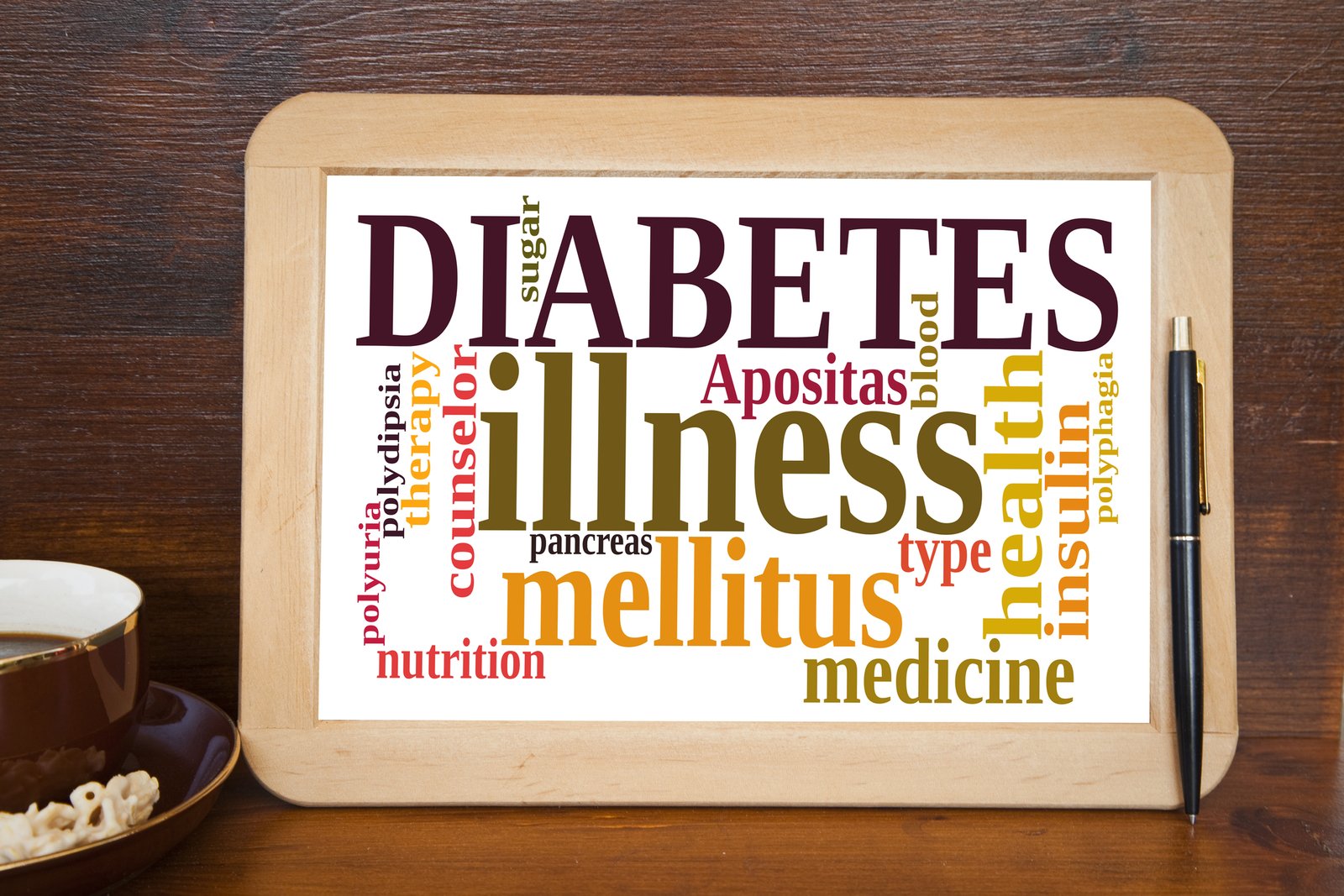
Diabetes and Diet
DIABETES
Diabetes mellitus (or diabetes) is a silent but serious chronic, lifelong medical condition that affects your body’s ability to use the energy found in food. There are three major types of diabetes: type 1 diabetes, type 2diabetes, and gestational diabetes.
Diabetes is a disease of the pancreas, an organ behind your stomach that produces the hormone insulin, secreted by Beta cells of islets of Langerhans in Pancreas and regularizes the blood sugar level in body. Insulin helps the body use food for energy. To keep body functions running smoothly, each and every cell including red blood cell and brain cell, depend on glucose as source of energy .In normal health condition, about 90-100 mg. /dl. Of blood sugar level is required and maintained by the hormonal cycle.
All types of diabetes mellitus have something in common. Normally, your body breaks down the sugars and carbohydrates you eat into a special sugar called glucose. Glucose fuels the cells in your body. But the cells need insulin, a hormone, in your bloodstream in order to take in the glucose and use it for energy.
When a person has diabetes, the pancreas either cannot produce enough insulin, uses the insulin incorrectly, or both. Insulin works together with glucose (sugar) in the bloodstream to help it enter the body’s cells to be burned for energy. If the insulin isn’t functioning properly, glucose cannot enter the cells. This causes glucose levels in the blood to rise, creating a condition of high blood sugar or diabetes, and leaving the cells without fuel.
While healthy body requires a minimum concentration of circulating blood sugar level, higher level (hyper glycaemia) causes various health problems. It is observed that blood sugar level above 300mg. /dl may causes polyuria, dehydration and decreased blood sodium level, above 500mg. /dl. May leads to confusion, cerebral edema, coma and eventually death (Ferrante, 2007). Persistently higher level (>130mg. /dl) gradually damages tissues and make more susceptible to infection, increases blood pressure, cholesterol and triglycerides level, increases body weight (obesity) and other complications.
DIABETES AND DIETS
Word “Diets’ is associated and lies itself in the word “Di ab et e s” to know the importance of diabetic diets let’s understand some simple basics of diabetes. Blood sugar level is replenished by the digested carbohydrates eaten in meal. To manage and to prevent diabetic complications, along with the prescribed medical treatment, a healthy life style and balanced meal plan make big difference. By making some simple modifications and adopting a tasty balanced diet plan, one can maintain healthy blood sugar level without feeling hungry or deprived. American Diabetes Association recommends typically designed diabetics diets should contains balance of fat, carbohydrate and proteins vitamins, fibers, antioxidants, omega 3 fatty acids. Unprocessed foods made of whole grains, beans, dark green leafy vegetables, citrus fruits and berries, row nuts, olive oils, fish oils, whole milk dairy unsweetened yogurt, eggs, fish, unprocessed meat etc. may be ideal diets.
Diabetes may be said to be ‘Mother of Diseases’ as it give rise to number of complications or diseases. Since the cells can’t take in the glucose, it builds up in your blood. High levels of blood can damage the tiny blood vessels in your kidneys, heart, eyes, or nervous. That’s why diabetes — especially if left untreated — can eventually cause heart disease, stroke, kidney, blindness, and nerve damage to nerves in the feet. Hence it is advisable that do not nourish diabetes by consuming more deep fried, processed junk foods, fast foods with added sugar, sweets, chips, desserts etc. But flourish your health increasing mood, energy and sense of wellbeing by adopting healthy food style by replacing refined pasta, bread by whole wheat-cereals pasta or bread, refined rice by brown rice, white potatoes by sweet potatoes and other planned low calorie diabetic diets.

About Post Author